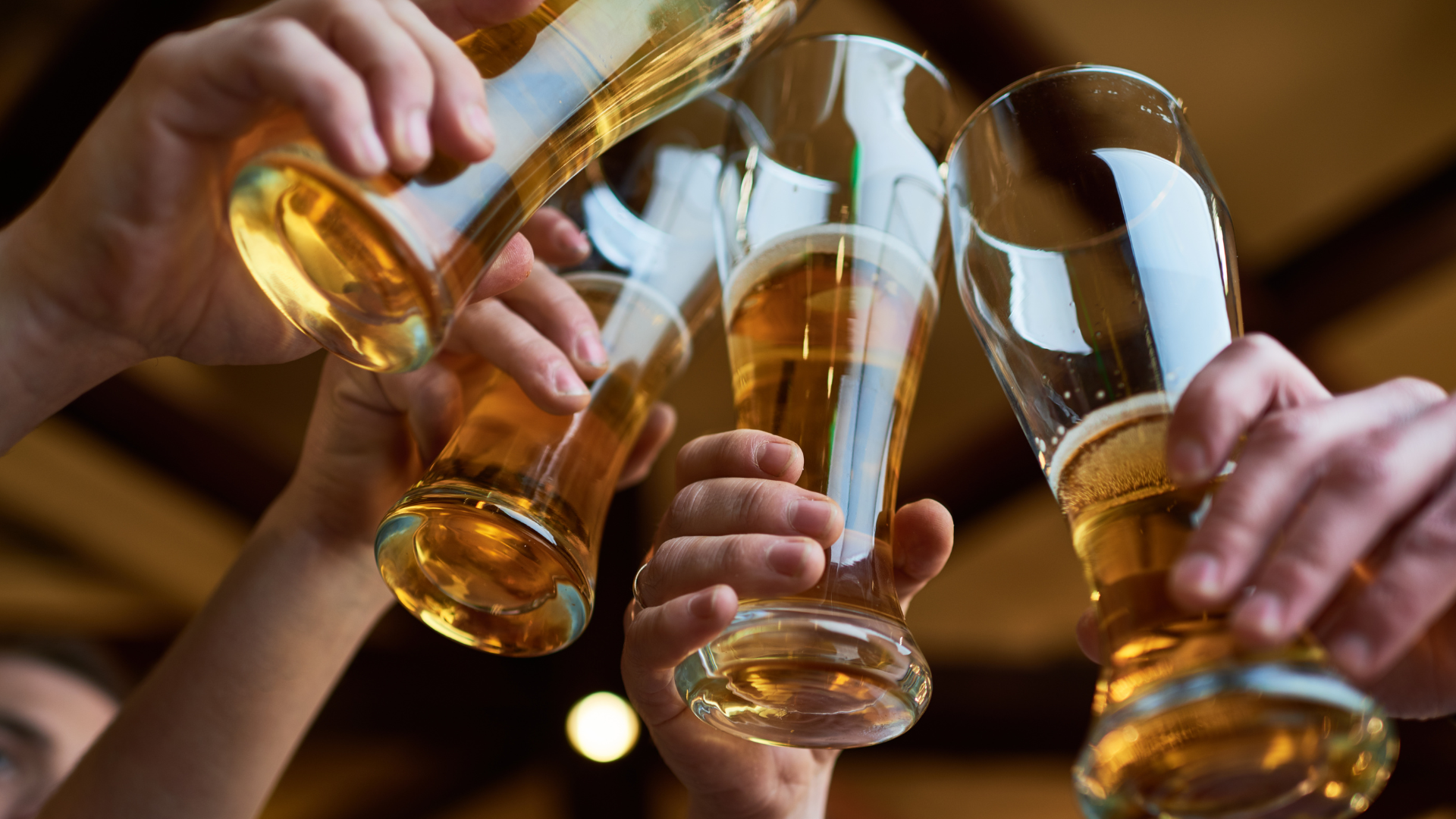Ahh, beer – there’s just nothing like that first sip of an ice-cold lager on a hot day, I am sure the majority of South Africans will agree. However, beer culture has evolved into far more than a lager, and on International Beer Day, I want to highlight the diversity in our country through my own journey into beer.
This International Beer Day, I challenge you to try something different – whether it’s a beer brewed with indigenous grains, something weird and wonderful from a home brew club, or a traditional Umqombothi.
It all started with a lager
For me, beer started with Castle Lager. It’s what my dad drank around the braai, what sponsored every sporting event in the ’80s and ’90s. If you said “beer”, I thought “lager”. Castle, Black Label, Hansa, maybe Windhoek if I was feeling fancy.
Beer has long been a part of our South African culture. Long before the Dutch settlers arrived at the Cape in 1650 with their European beers, communities across Africa had already been brewing for centuries. From these roots, beer has grown into one of SA’s most loved and diverse drinks – enjoyed in shebeens, brewed in backyards, and even paired with fine dining.
The commercial beer scene in South Africa took off with South African Breweries (SAB), founded as Castle Brewery in 1895 during the gold rush, with their flagship beer Castle Lager becoming an iconic national beer. While lagers have long dominated, recent years have seen a rise in craft beer and home brewing culture.
From lagers to Lex: My craft beer awakening
Growing up on the Garden Route, I had no idea what craft beer was. Until I found Mitchell’s Brewery in Knysna, founded by Lex Mitchell. Mitchell’s was SA’s first microbrewery, back in 1983, and it was the first time I tasted something that wasn’t a mass-produced lager.
Years later, while studying hospitality in Port Elizabeth – now Gqeberha, I found myself craving that spark again. The craft scene hadn’t really landed in PE yet, so I bought a basic home brew kit that came with a plastic bucket, a malt extract tin, a vague instruction sheet, and some yeast. (Spoiler: I had no idea what I was doing). My family politely held down sips, nodded and smiled – I knew it was bad, but it was the possibility that excited me.
Soon after, Bridge Street Brewery opened in Gqeberha, started by none other than Lex Mitchell! They brewed a Best Bitters and a delicious Chocolate & Coffee Stout that totally changed how I thought about beer and so my interest turned into a passion that continues today.
The rise of home brewing creativity
I moved to Cape Town in 2015, and the craft beer scene was starting to grow. I discovered Afro Caribbean Brewing Company (ACBC) at Banana Jam Café who had hundreds of beers, like the Tactical Nuclear Penguin from BrewDog – which at the time had the highest ABV in the world, coming in at 32% (Snake Venom by Brewmeister Brewery is currently the highest, with a jaw-dropping ABV of 67.5%). But it was their own creations that really inspired me, like their Bacon Jalapeño Popper Ale. I mean, come on! This showed me that beer was more than simply another beverage – it was creativity in a glass.
It was around this time that I truly fell in love with beer – not just drinking it, but brewing, experimenting, and sharing it. COVID was tough, but one upside was the positive impact on home brewing in SA. Many people took up or doubled down on it, and once restrictions eased, they – like me – joined local brewing clubs to to continue their newfound passion.
By 2021, inspired by two friends, we joined SouthYeasters – one of the oldest home brewing clubs in SA and one of only three in the Cape. That first tasting had over 20 people (a lot for the time). Some beers were good, a few were brilliant, mine was… okay.
Since then, I’ve watched the home brewing community grow. From just three clubs in the Western Cape in 2021 to 10 today – and around 17 nationwide! But it’s the passion and support in the community that’s really inspired me.
Umqombothi: Traditional African beer
For all the innovation in craft and homebrewing, one thing still feels underrepresented – traditional African beer.
Umqombothi has been brewed for centuries across the continent, rooted in ceremony, culture, and community. But despite its legacy, it’s often sidelined, especially by commercial brewers. That’s where Reitumetse Kholumo – or Tumi as she refers to herself – from Kwela Brews steps in.
Kwela Brews launched in 2022 to support women in low-income communities who rely on traditional brewing. Many of them have inherited this knowledge through generations but lack funding, resources, and safe brewing spaces. Tumi shared that both her maternal grandmother and paternal great-grandmother were home brewers. For them, it wasn’t just about income – it was about holding cultural space. In many African communities, traditional beer plays a vital role in rituals and ceremonies.
Funerals, weddings, or any event where you need to announce something to the ancestors, don’t usually happen without beer. Traditionally, Umqombothi is drunk while it is still fermenting, and seeing this foam on top of the beer is seen as a sign that the ancestors are in agreement, that they support the ceremony and that the offering is received. – Tumi
Her mission is bringing modern quality assurance, technical and logistical support to ancient traditions, while making sure to honour, protect and grow this important part of our culture. She’s not just brewing beer; she’s “helping reclaim and decolonise our palates”, as she puts it.
Beer’s new chapter on menus
Recently, beer has been taken more seriously in the food world – its creativity, versatility, and traditional and cultural history are being celebrated. There are great initiatives in our restaurants and breweries and (in the spirit of International Beer Day), to celebrate those responsible, here are some of my picks for those innovating and showcasing traditional beer:
- Curate at Ellerman House: Serves a pineapple Umqombothi made from the offcuts of their pineapple dishes.
- Chief’s Boma: Offers Umqombothi as a welcome drink.
- Mama Africa: Serve Umqombothi on their menus.
- Soul Barrel x Tolokazi Brews: Award-winning collabs blending traditional and modern techniques.
- Thembi Ndlovu: Known as the queen of Umqombothi.
Umqombothi at Curate came into fruition from one of our staff members buying a house and inviting everyone over, and the women made Umqombothi as a traditional welcome [drink]. So I got inspired by that and did some research online on how to do it. It’s quite a rough product – very porridgy, very thick. So what we kind of did was just refine it a bit. I found a proper beer site with the recipe and then just used trial and error to get ours right. – Chef Kieran Whyte
We’re starting to see the early signs of a beautiful shift, where traditional African beer is given the platform, respect, and innovation it deserves.
From IPAs and pale ales to ancient sorghum brews and bacon-flavoured beers, South African beer is more creative and more diverse than ever. What excites me most is seeing that diversity reflected not just in flavour, but in people. So this International Beer Day, whether you’re a beer geek, a lager lover, or someone who “doesn’t like beer”, I want to challenge you to try something new, and who knows, you might surprise yourself and realise there is so much more to beer than just an ice-cold Castle Lager.



0 Comments